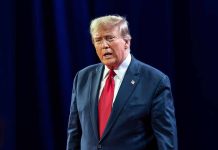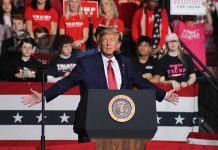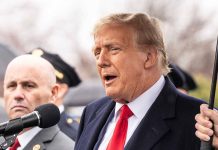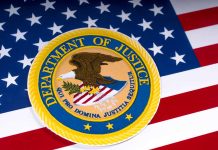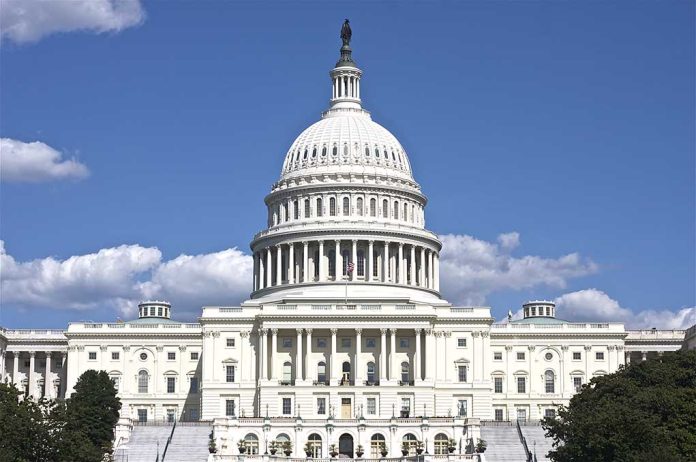
Amidst domestic turbulence, the U.S. Congress overlooked a critical deadline, allowing the North Korean Human Rights Act to lapse.
At a Glance
- The North Korean Human Rights Act (NKHRA)’s 20th anniversary passed without reauthorization by Congress.
- The NKHRA, crucial for promoting freedoms in North Korea, expired amid conflicting congressional priorities.
- The lapse extends until at least the next congressional session, risking three years of inaction.
- The U.S. legislative focus on averting government shutdowns overshadowed NKHRA’s renewal.
Significance of the North Korean Human Rights Act
October 18th marked two decades since the enactment of the North Korean Human Rights Act, heralded for enhancing freedoms in North Korea. This landmark legislation facilitated refugee resettlement to the U.S., helped reunite families, and established a dedicated envoy for North Korean human rights issues. This act has been pivotal in supporting human rights initiatives and unfiltered broadcasting into North Korea, thus amplifying narratives that challenge governmental propaganda. Unfortunately, as domestic issues took precedence in Congress, the act was overlooked.
Congressional efforts failed to include the NKHRA’s renewal in the National Defense Authorization Act, further casting doubt on its future. The act expired in September 2022 and risks another three years of inactivity unless reauthorized swiftly. This oversight coincided with deteriorating conditions within North Korea, exacerbated by strict pandemic-induced border controls and increasing documented human rights abuses.
FEATURE: U.S. North Korean Human Rights Act turns 20, but gains remain elusive https://t.co/7KMwYlha5k
— NK NEWS (@nknewsorg) October 18, 2024
Challenges in Reauthorizing the NKHRA
The NKHRA’s lapse has sparked significant concern among human rights activists and lawmakers alike. Representative Young Kim and her peers are committed to reintroducing the act. However, efforts are stalled by domestic priorities such as potential government shutdowns, which have dominated congressional attention. Currently, Senator Rand Paul has placed the act on hold with unresolved objections, further complicating reauthorization pathways.
“October 18th marked 20 years since the North Korean Human Rights Act (NKHRA) was signed into law.” – Olivia Enos
Unclear Senate objections have left critical legislation in limbo, delaying potential pathways for urgent congressional action. Meanwhile, experts have consistently linked human rights infringements in North Korea with broader global security concerns, highlighting the necessity of timely legislative focus.
As a Korean American with relatives who defected North Korea, holding authoritarian regimes accountable & uplifting freedom-loving people are top priorities of mine on @HouseForeignGOP.
My bipartisan North Korean Human Rights Reauthorization Act is vital to this work. pic.twitter.com/jbSQPEW1TO
— Young Kim (@RepYoungKim) May 17, 2024
Path Forward and Potential Solutions
Continued advocacy from lawmakers like Rep. Young Kim emphasizes the geopolitical significance of maintaining pressure on authoritarian regimes, notably North Korea. They emphasize that reauthorizing the NKHRA serves as a symbol of U.S. commitment to promoting global human rights. Steps resembling those taken for the Uyghur community’s atrocity determination may once again draw attention to North Korea’s plight and renew support for the act.
“Kim Jong Un oppresses the North Korean people through torture, imprisonment, starvation, and forced labor every single day. These gross human rights abuses cannot be tolerated.” – Rep. Young Kim
Reinvigorated legislative efforts in the coming 119th Congress are anticipated to reintroduce the North Korean Human Rights Reauthorization Act, hoping to break the standstill and refocus priorities. The coming sessions hold the promise of actions remedying the current situation, fortifying America’s role as a perennial advocate for freedom and justice globally.
Sources
1. Rep. Young Kim’s North Korean Human Rights Reauthorization Act Passes Committee
2. Twenty Years On, the North Korean Human Rights Act Remains Lapsed


